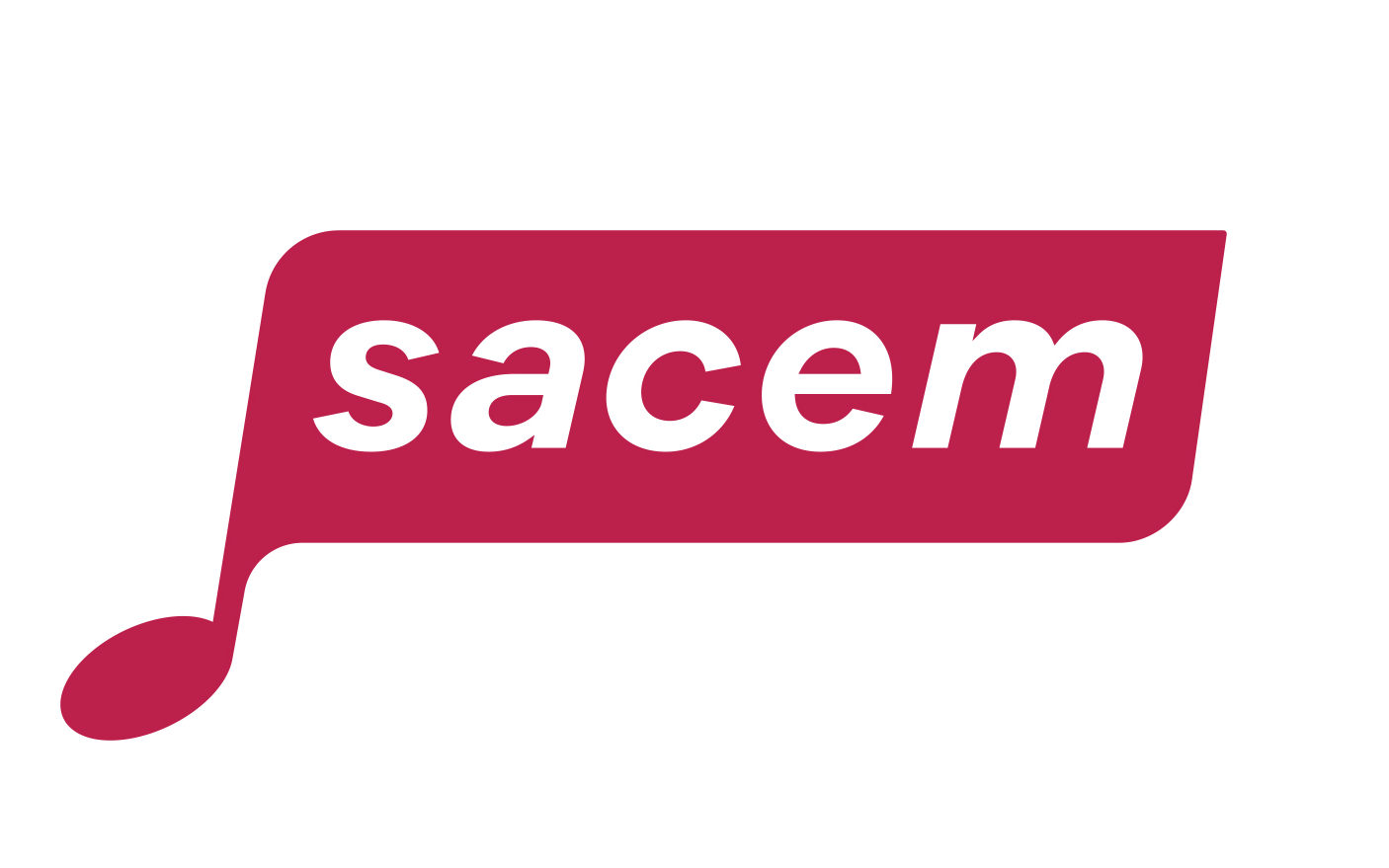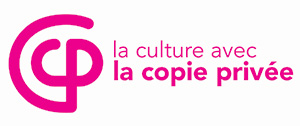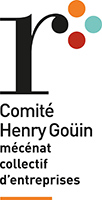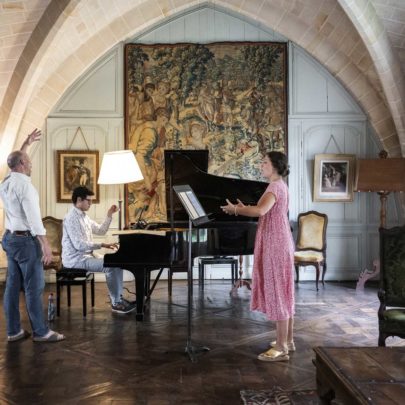Composing and playing with roots
For composers and performers
Period
August 14 to 28, 2026
August 14 to 28, 2026 (composers) | August 20 to 28, 2026 (performers)
Presentation
Campus Voix Nouvelles offers a unique opportunity for composers and performers to progress with recognized professionals.
For composers, it recreates the entire process of creating a new work, under professional conditions: writing, rehearsals, public performance, under the supervision of internationally renowned composers of diverse aesthetics.
It brings in the best ensembles and soloists to rehearse and perform the works, which are then performed in public and recorded. What’s more, it gives us the opportunity to collaborate with exceptional musicians, who cultivate a veritable force of proposal in the development of the work in progress.
At the end of the training program, the Royaumont Foundation continues to support the composers taking part in the Campus by awarding commissions for new works to be performed at the Saison Royaumont or in the programming of partners, ensembles or professional soloists.
Performers benefit from the advice of musicians experienced in contemporary repertoire and interaction with composers, in the form of individual lessons, rehearsals of chamber music repertoire or solo works. The performers are formed into an ensemble, the “Ensemble Voix Nouvelles”, which will work on a specific repertoire, drawing on the work of the Campus tutors, but will also be called upon to contribute to the creation of the composer participants, alongside the ensembles and professional performers present.
The 2026 edition of Campus Voix Nouvelles
In 2026, Campus Voix Nouvelles places the question of identity at the heart of the creative process. Under the theme “Composing and playing with one’s roots”, this new edition invites composers and performers to explore what, in their origins, history or culture, irrigates their sonic imagination. How does individual or collective memory shape contemporary musical writing? What gestures, languages, sonorities, techniques or ways of playing an instrument are born of a conscious dialogue with one’s roots?
Campus Voix Nouvelles becomes a place of transmission, creation and exchange. Under the guidance of composer Zad Moultaka (Lebanon) and composer Farnaz Modarresifar (Iran) – the latter also playing the santour, a traditional Persian instrument – participants will be accompanied in the composition of new works based on this theme.
This reflection will unfold with the help of exceptional forces. The prestigious International Contemporary Ensemble (ICE, New York), renowned for its commitment to contemporary creation and intercultural dialogue, will be the resident ensemble. Alongside them, American soprano Marisol Montalvo, American conductor of Zimbabwean origin Vimbayi Kaziboni, koto player Naoko Kikuchi (Japan) and santur player Farnaz Modarresifar (Iran) will open up new avenues of collaboration, transmission and inspiration.
Campus Voix Nouvelles offers a framework for intensive work: individual courses, group workshops, critical exchanges, rehearsals and live performance. Through voice, instrument, improvisation, sound or silence, each composer and performer is invited to develop a unique voice, nourished by what connects him or her to the world.
Campus Voix Nouvelles is part of the 2026 Summer Campus, bringing together other training courses taking place at the same time. Common sessions will be organized for all participants, such as physical practice sessions (e.g. munz floor), conferences, debates or interventions in specific areas of personal or career development.
Teachers
Composition
Born in Lebanon in 1967, Zad Moultaka began playing the piano and painting at the age of five. After studying at the Beirut National Conservatory, he moved to Paris in 1984, winning two first prizes (piano and chamber music) at the CNSMDP in 1989. After a career as a classical soloist, he gave up the stage in 1993 to devote himself to composition and the visual arts. His work, deeply rooted in Mediterranean and Eastern tradition, dialogues with Western forms without compromise. He collaborates with prestigious institutions (IRCAM, Opéra du Rhin, Venice Biennale, Ensemble Modern…), and mixes opera, chamber music, visual and plastic installations. His honors include the Prix Claude-Arrieu (SACEM), the Prix de la Critique Musicale (2017) for the work UM, and exhibitions in New York, Metz, Paris and Beirut. In 2025, he published Strates etpalimpsestes, a work analyzing his creation.
Farnaz Modarresifar (b. 1989, Tehran) is a Franco-Iranian composer, poet and santurist. A graduate of the Conservatoire National Supérieur de Téhéran (first prize in santour, 2012), she perfected her composition training at the CRR de Boulogne-Billancourt and the École Normale de Musique de Paris-Alfred Cortot (first prizes, 2014-2018). In 2020, she obtained a Master’s degree in improvisation and musical creation at Paris 8 University. Winner of the Grand Prix Lycéen des Compositeurs 2023 and the Prix Claude Arrieu (SACEM) in 2024, she evolves at the intersection of Western classical music, Persian traditions and sound poetry. Her artistic practice combines contemporary writing, improvisation and poetic expression, the material of her performances and compositions – often meditative, organic, attentive to Persian heritage yet flirting with the avant-garde. Based in Paris, she participates in festivals such as Archipel 2025 and publishes regularly via Ircam and Artchipel.
Interpretation
Founded in Chicago in 2001 by flutist Claire Chase, the New York-based International Contemporary Ensemble (ICE) is a musical collective of around thirty-four artists (strings, winds, piano, percussion, voice, technology…). It has premiered over 1,000 works, including more than 500 original commissions, with prizewinners including Aperghis, Alvin Lucier, John Zorn, David Lang, George Lewis and Du Yun. ICE is the winner of the Chamber Music America/ASCAP awards for adventurous programming, Musical America’s Ensemble of the Year, and is recognized as “America’s foremost new-music group” by The New Yorker. It develops innovative collaborative models (notably ICElab, 75 works in 285 concerts), blending art, multimedia, education and musical citizenship. Today, under the artistic direction of George Lewis, ICE acts as a driving force for contemporary sound creation, between transmission and experimentation.
Born in 1976 on Long Island, Marisol Montalvo is an American soprano of Puerto Rican descent, with degrees from Mannes College and Zurich. She made a name for herself in the contemporary repertoire, most notably in the title role of Berg’s **Lulu**, at its Paris Opéra premiere, hailed by *Le Monde* for her “intensity and stage presence”. She went on to play Lulu on major stages (Berlin, Vienna, Toulouse, Basel…). She collaborates with conductor Christoph Eschenbach, with whom she made her Carnegie Hall debut, and performs with renowned orchestras: Vienna Philharmonic, Houston Symphony, Orchestre de Paris, London Philharmonic, Munich Philharmonic… Her repertoire oscillates between contemporary and demanding lyricism, and she is a regular guest at international festivals and opera houses.
Originally from Sendai (Japan), Naoko Kikuchi discovered koto through her mother and grandmother. In 1989, she studied with masters Tadao and Kazue Sawai, and went on to win prizes in several competitions. As a student at Sophia University in Tokyo, she took part in a world tour (Europe, Americas) with the Sawai Kazue Ensemble. In 2007, she was awarded a Japanese government scholarship to continue her studies in Frankfurt, becoming a member of the International Ensemble Modern Academy. Her repertoire covers both traditional and contemporary koto music, and she stands out for her virtuosity, her ability to navigate between meditative melodies and modern incarnations, creating “timeless moments”. She performs regularly in international concerts and recordings.
Born in Zimbabwe in 1988, Vimbayi Kaziboni is a conductor and curator internationally acclaimed for his “great intensity, without distancing” (*Neue Musikzeitung*). He directs institutions such as the Boston Lyric Opera, and is artist-in-residence at ICE. Professor of Orchestral Studies and Contemporary Music at the Boston Conservatory, he studied in Germany and was awarded a Fulbright scholarship to Uzbekistan. In 2024, he received the prestigious Ditson Conductor’s Award. His career includes concerts at Carnegie Hall, Walt Disney Hall, Philharmonie de Paris, Elbphilharmonie, Concertgebouw, Lincoln Center, and tours of Europe, Asia and the Americas. His practice combines expressiveness, contemporary rigor and inventive programming, opening up new dialogues between repertoire, tradition and creation.
Ilan Volkov is an Israeli conductor born in 1976 in Tel Aviv. Trained at the Royal Academy of Music in London, he distinguished himself early on through his musical curiosity and passion for contemporary creation. At 19, he became assistant conductor of the Boston Symphony Orchestra, later serving as music director of the Iceland Symphony Orchestra (2003–2011), where he championed bold programming that blended 20th-century classics with new works. A regular guest with leading European ensembles — including the BBC Scottish Symphony Orchestra, Philharmonia, and Ensemble Intercontemporain — Volkov is acclaimed for his precision, energy, and stylistic openness. He also founded Tectonics, an international festival devoted to sonic experimentation and dialogue between composed and improvised music. A visionary conductor, Ilan Volkov stands as a key figure in today’s contemporary music scene.
Modalities of the composers’ course
August 14 to 28, 2026
Target audience
10 composers
Procedure and method
> upstream :
For composers and performers: videoconference sessions (1h/1h30) will be organized on a regular basis between November 2025 and July 2026. The purpose of these sessions will be to understand, design and develop the overall form of the final work presented at the end of the Campus Voix Nouvelles; these sessions will take place in the alternating presence of the trainers.
Forcomposers : individual lessons with the composer’s supervisor take place by videoconference, between the announcement of the selection and the Campus Voix Nouvelles on site. Composers submit their work in stages, according to the schedule detailed below.
> on site :
For composers :
- August 14 to 16, 2026: group sessions with Farnaz Modarresifar and Zad Moultaka / individual sessions with Farnaz Modarresifar and Zad Moultaka (score editing, 1 hour per composer)
- August 17 and 18, 2026: individual presentations by composers (background, artistic approach, work(s))
- August 19, 2026: rest
- August 20, 2026: conferences / workshops (in progress)
- August 21, 2026: conferences / workshops (in progress)
- August 22, 2026: rest
- August 23 to 26, 2026: rehearsals (2 x 2 hours per work)
- August 27, 2026: final return of works of art
- August 28, 2026: final public renditions of the works
Schedule: vocal and instrumental forces
The following training courses are available for writing pieces.
Each candidate must indicate a choice of three preferred courses, which will be respected as far as possible. This information is essential for processing the application: if it is missing, the application will be considered invalid.
- Formation 1: soprano, flutes, saxophones, horn, violin, cello, electric guitar, santoor, percussion
- Formation 2: koto, flutes, saxophones, horn, violin, cello, electric guitar, percussion
- Formation 3: soprano, flutes, electric guitar, santoor, violin, cello
- Formation 4: soprano, koto, santour, percussion
- Formation 5: violin, cello, horn, santoor
- Formation 6: koto, horn
- Formation 7: flute, saxophones, koto
- Formation 8: saxophones, electric guitar, percussion
Marisol Montalvo: soprano
Ensemble ICE: flutes, saxophones, horn, electric guitar, violin, cello, percussion
Farnaz Modarresifar: santur
Naoko Kikuchi: koto
Details of understudies and percussion will be provided at a later date.
Method: score delivery schedule
- 60% of the score on April1, 2026
- 80% of the score on June1, 2026, with a note in English and French about the work (1200 characters including spaces)
- 100% of the score on July1, 2026
Prerequisites and conditions of access to training
Be an artist in the field of music: a composer with professional or pre-professional experience.
Participants formally undertake to complete the entire course.
Duration
from August 14 to 28, 2026, including 2 days off, for a total of 13 days (91 hours)
Rates
Application
Pre-selection based on applications, then invitation to interview (week of November 3)
Documents to be provided :
- Biography, 600 characters including spaces, in French and English
- CV
- Cover letter: highlighting skills and qualities, reasons for wanting to take part in Campus Voix Nouvelles, short ideas about the project.
Please indicate which three of the ten training courses listed above are required [applications that do not include this information will not be considered].
- Picture
- Three scores and the three corresponding recordings; good quality sound recordings are essential. Mock-ups are not accepted
Modalities of the interpreters’ course
August 20 to 28, 2026 (interpreters)
Target audience
8 performers, detailed as follows:
1 singer
1 conductor
6 instrumentalists playing one of the following instruments:
- Strings (violin, viola, cello, double bass)
- Woodwinds and brass (flutes, clarinets, oboes, bassoons, horns, trumpets, trombones, tubas)
- Guitar
- Percussion
Procedure and method
> upstream :
For composers and performers: videoconference sessions (1h/1h30) will be organized regularly between November 2025 and July 2026. They will focus on understanding, conceiving and elaborating the overall form of the final work presented at the end of the Campus Voix Nouvelles; these sessions will take place in the alternating presence of the trainers.
> on site :
- August 20, 2026: work on contemporary repertoire / lectures / workshops
- August 21, 2026: work on contemporary repertoire / lectures / workshops
- August 22, 2026: rest
- August 23 to 26, 2026: work on contemporary repertoire / individual coaching by professional guest musicians
- August 27, 2026: final return of works of art
- August 28, 2026: final public renditions of the works
Prerequisites and conditions of access to training
Be an artist in the field of music: singer, conductor, instrumentalist, with professional or pre-professional experience.
Participants formally undertake to complete the entire course.
Duration
Interpreters: from August 20 to August 28, 2026, including 1 rest day, i.e. 8 days (56 hours)
Rates
Application
Pre-selection based on applications, then invitation to interview (week of November 3)
Documents to be provided :
- Biography, 600 characters including spaces, in French and English
- CV and contemporary repertoire already covered
- Cover letter: highlighting skills and qualities, reasons for wanting to take part in Campus Voix Nouvelles, short ideas about the project, wishes for repertoires to be covered
- Picture
- Two video recordings of contemporary works
Calendar (all courses combined)
Application deadline
november 16, 2025
Pre-selection announcement
december 1st, 2025
Individual interview by videoconference
december 8, 2025
Final selection announced
Week december 15, 2025
Date of first videoconference
Week of january 12, 2026
All Royaumont Foundation training programs have a minimum lead time of 11 working days.
Example: if the Royaumont Foundation validates the registration request on June 14, it can offer the beneficiary a course starting on June 29.
Fiche programme
| Prior to training | November 2025 Composers and performers Meeting between all Campus Voix Nouvelles participants and tutors. By videoconference. November 2025 to June 2026 Composers and performers Regularly scheduled group sessions to share and monitor work in progress, and to develop the form of final performances. By videoconference. Between March and June 2026 Composers A one-hour individual lesson with Farnaz Modarresifar. A one-hour individual lesson with Zad Moultaka. By videoconference. Composers and performers One-to-one exchanges between composers and performers, while their work is being written. By videoconference, e-mail or telephone. Between December 2025 and July 2026 Composers Composition of the work according to a precise timetable. Self-study. Performers Choice of repertoire, personal work on works. Personal self-study. | These sessions are led by the training coordinator and the supervisors. Distance learning. |
| Week 1 | August 14, 2026 Composers Welcome of training participants: – presentation of beneficiaries, supervisors, referents (pedagogical, administrative, logistical); – presentation of premises; – presentation of training program; – reminder of target skills/operational objectives. August 14 to 16, 2026 Composers Composers receive one-to-one tuition with composer supervisors (1 one-hour lesson per supervisor) and group tuition with composer supervisors (1 2.5-hour lesson per supervisor). August 17 and 18, 2026 Composers Each composer introduces herself to the other Campus Voix Nouvelles participants (background, approach, completed works, work in progress). August 19, 2026 At ease. August 20, 2026 Interpreters Welcoming training participants: – presentation of beneficiaries, supervisors, referents (pedagogical, administrative, logistical); – presentation of premises; – presentation of training program; – reminder of target skills/operational objectives. August 20 and 21, 2026 Composers and performers Lectures on the theme of Campus Voix Nouvelles, led by the educational advisor and outside contributors. Workshops: communication (The art of self-presentation, management), led by the educational advisor and outside contributors. Performers Work on selected works from the contemporary repertoire. August 22, 2026 Rest | This week is led by the educational advisor and supervisors. Face-to-face. |
| Week 2 | August 23 to 27, 2026 Composers Rehearsals of the composers’ works (2 x 2 hours per work). Individual 20-minute interview with the course leader on their professional project. Performers Rehearsals of selected works from the contemporary repertoire. Individual coaching by guest professional performers August 28, 2026 Composers and performers Final public performances of the works, with audiovisual recording. | This week is led by the educational advisor and supervisors. Face-to-face. |
version n°1 dated 26/06/2025
Validity of version n°1: 1 year renewable
Course description/content of the training
Number of traines minimum / maximum
Lower limit: 10 composers / 8 performers
Upper limit: 10 composers / 8 performers
Educational objectives
Composers
Knowledge
- Deepen theoretical knowledge of a specific repertoire.
Expertise
- Use technical specificities to create a new work and present the fruit of this work in public during the final performance.
soft skills
- Define your relationship with your origins and how this translates into your creative artistic approach.
- Find the best ways to share your artistic intentions and integrate the technical limitations of the performers into your writing process.
- Share your project with an audience during the final presentation.
- Be able to integrate into a team and participate actively and positively in the collaborative process.
- Know how to talk about your personal and artistic journey.
Performers
Knowledge
- Deepen theoretical knowledge of a specific repertoire.
- Improve technical, physical and gestural ease.
Expertise
- Use the technical specificities and extended techniques explored to create a new work and present the fruit of this work in public at the final performance.
soft skills
- Define your relationship with your origins and how this translates into your approach.
- Share your project with an audience during the final presentation.
- Be able to integrate into a team and participate actively and positively in the collaborative process.
- Know how to talk about your personal and artistic journey.
- Achieving the right interpretation in terms of ensemble practice.
- Take into account the spatial and acoustic configuration of the venue.
- Evaluate the quality of public relations.
Targeted competencies / operational objectives
At the end of the training the beneficiary will be able to :
Composers
- Composing a work in a given time ;
- Conceive a project collectively, and know how to take part in a joint reflection process by contributing proposals;
- Communicate about your career, your approach, your work;
- Communicate his/her artistic intentions to the performers of his/her work ;
- Receive and integrate suggestions from interpreters and supervisors and translate them into a personal language;
- Integrate the technical limits of interpreting as expressed by interpreters and supervisors.
Performers
- Understanding the musical intentions of composers ;
- Conceive a project collectively, and know how to take part in a joint reflection process by contributing proposals;
- Suggest instrumental technical limits to composers.
Methods used
Composers
Teaching aids :
- Individual lessons (2 with each supervisor) ;
- Group lessons (2 with each supervisor) ;
- Group discussion sessions between composers, singers and supervisors;
- Individual discussion sessions between composers and performers before the works are handed over;
- Each composer presents his or her background, artistic approach and work;
- Collective management sessions (creation of an ensemble, contemporary music network…) ;
- Workshop rehearsals;
- Public presentations of final works, with audiovisual recording.
Performers
Pedagogical resources
- Individual and group coaching sessions;
- Rehearsals ;
- Each participant presents his or her artistic career;
- Public presentations of final work, with audiovisual recording.
Technical resources available :
- Workrooms, equipped with desks and chairs.
- Documentation via a private google drive.
- Composers will have access to a photocopier and will be provided with the materials needed to print their complete score and separate parts (paper, binders, cover).
- Performers will have access to a photocopier to print out their scores.
Monitoring and evaluation methods
During the course, face-to-face
Composers
Assessment, through practical work, of the beneficiary’s reactivity and ability to quickly integrate the proposals made by the facilitators, as well as his/her ability to integrate into the group.
The individual interview between the training manager and the beneficiary enables assessment and career guidance.
In particular, the following are observed for the beneficiary :
- the ability to conceive and produce a balanced, original work, using writing techniques or effects in a controlled and balanced manner ;
- the ability to communicate about their work, both during rehearsals and public presentations.
- initiative, driven by common interest and collaborative research.
Performers
Assessment, through practical work, of the beneficiary’s reactivity and ability to quickly integrate the proposals made by the facilitators, as well as his/her ability to integrate into the group.
In particular, the following are observed for the beneficiary :
- the quality of the body and gestural ease ;
- the accuracy of the interpretation and the work accomplished in terms of ensemble practice ;
- the consideration of the spatial and acoustic configuration of the venue ;
- the quality of the relationship with the public.
The beneficiaries sign a sign-in sheet for each half-day.
At the end of training
The beneficiary receives a certificate at the end of the training course, stating the objectives, nature and duration of the action, as well as the results of the assessment of the training acquired, along with the certificate where applicable.
Qualitative assessment methods
The beneficiary fills in a qualitative evaluation form to assess the artistic, pedagogical, human and material aspects of the training.
A post-training follow-up is established, for which beneficiaries are asked to inform us within six months of the end of the training of any contracts they have obtained.
Accessibility and consideration of disability situations
The Royaumont Foundation has made the acceptance and participation of people with disabilities a strong commitment to its project. Our training courses are open to people with disabilities and different arrangements can be made according to the specificities of each course. To discuss your needs, please contact us when you register, or get in touch with our disability advisors.
Contact
Pedagogical manager
Jean-Philippe Wurtz, Artistic Director, PôleCréation Musicale
jp.wurtz@royaumont.com
Administrative manager
Samuel Agard, administrator and advisor to the PôleCréation musicale
s.agard@royaumont.com
Logistics referent
Claire Simon, Production Manager, Musical Creation Department
c.simon@royaumont.com
Disability referents
Samuel Agard and Doriane Trouboul
referenthandicap@royaumont.com
VHSS Referent
Human Resources Manager
vhss@royaumont.com
They’re talking about Campus Voix Nouvelles
Campus Voix Nouvelles in pictures
![[Concert] Académie Voix Nouvelles - "Schablonen" de Kroot-Kärt Kaev](https://i.ytimg.com/vi/KP3PGHWXz34/hqdefault.jpg)
![[Concert] Académie Voix Nouvelles - "Op Op CCC Variations" de Théo Mérigeau](https://i.ytimg.com/vi/rfRC8eJVz68/hqdefault.jpg)
![[Concert] Académie Voix Nouvelles - "Au regard de Prismes - Ma déraison d'être" de Maxime Mantovani](https://i.ytimg.com/vi/sh4ZeC0BRrs/hqdefault.jpg)
![[Concert] Académie Voix Nouvelles - "Mycelium" de Nathaniel Otley](https://i.ytimg.com/vi/Qu0I660iKYU/hqdefault.jpg)
![[Concert] Académie Voix Nouvelles - "Futile" de Jieun Jeong](https://i.ytimg.com/vi/3y_I3AZYrwk/hqdefault.jpg)
![[Concert] Académie Voix Nouvelles - "Plan à vol de corbeau, poème n°1" de Jinwook Jung](https://i.ytimg.com/vi/TxtliJssJ4c/hqdefault.jpg)
![[Concert] Académie Voix Nouvelles - "Anamu alla al'hajiri al'natayi" de Rachel C. Walker](https://i.ytimg.com/vi/0dk9ThshDcw/hqdefault.jpg)
![[Concert] Académie Voix Nouvelles - "Tesserae" de Jia Yi Lee](https://i.ytimg.com/vi/_psTx1lq3oQ/hqdefault.jpg)
![[Concert] Académie Voix Nouvelles - "Presencia de sombra" de Jonatan Sersam](https://i.ytimg.com/vi/FnTGVqTrHCQ/hqdefault.jpg)
![[Concert] Académie Voix Nouvelles - "Presencia de sombra" de Jonatan Sersam](https://i.ytimg.com/vi/zpmXfr4b6gk/hqdefault.jpg)
![[Concert] Académie Voix Nouvelles - "Vaguelettes en rémanence" de Sungwon Shin](https://i.ytimg.com/vi/uIlzZ0L8Ibc/hqdefault.jpg)
![[Concert] Académie Voix Nouvelles - "Gone in no time" de Myrto Nizami par Marie Ythier](https://i.ytimg.com/vi/4gZh6h5y3PU/hqdefault.jpg)
Fondation d’entreprise Société Générale is the main sponsor of the Royaumont Foundation’s musical programs.
As a long-standing partner of Royaumont, Sacem supports the Foundation’s Pôle Création musicale .
With the support of the Comité Henry Goüin.
With the support of the Association des Amis de Royaumont.
Christine Jolivet Erlih and Michèle Gagliano support commissions for original musical works by young composers.
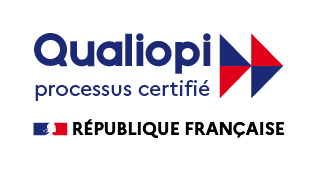
Certificat Qualiopi Royaumont
(en téléchargement)


